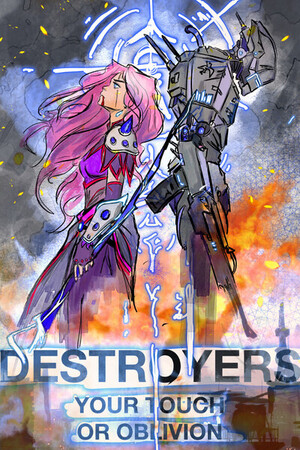Chapter 16:
Chapter 17 The Distance Between Notes
Promise Under Cherry Blossom 🌸
The following morning, the bench under the ginkgo tree felt colder than usual.
Ren sat there, violin case beside him, fingers absently tracing the strap of his bag. The Spring Lights Festival was over. The lanterns were taken down. The music had faded from the streets. But something lingered.
Yui had returned to Tokyo before sunrise.
No goodbye. No final performance. Just a note.
“It’s hard to say goodbye when the song hasn’t ended. I’ll see you again. –Y.”
Ren didn’t cry.
Not because he wasn’t hurting. But because the melody she left behind still hummed in the back of his mind. It had become a habit now—their emotions turning into verses, each separation a prelude to the next harmony.
He whispered into the morning air:
“I’ll wait.”
Classes began to thin out. With graduation around the corner, many students had either gone off for university interviews or retreated into their own private anxieties.
Ren stayed behind in the music room almost every day.
Sometimes he just sat in silence. Other times he played through old compositions—their first duet, the rooftop ballad, Hikari no Melody.
But today, he began something new.
He called it The Distance Between Notes.
It wasn’t a love song. Not entirely.
It was about absence. About silence. About how the most painful part of music is often not the melody—but the space between sounds.
Meanwhile, in Tokyo, Yui was struggling too.
She lived in a dormitory with five other students from her music institute. The room was small, the walls thin, and the lights too bright at night. Her days were packed with theory lessons, voice training, and late-night rehearsals.
But in all that noise, she couldn’t hear her heart.
Her lyric journal—once overflowing—remained blank.
It wasn’t writer’s block.
It was loneliness.
One evening, she called Ren. No video. Just voice.
He picked up after two rings.
“Yui.”
“Hey,” she said softly.
There was a pause.
Then, out of nowhere, she asked:
“Are we losing each other?”
Ren froze. “What do you mean?”
“I mean... we’re writing songs about waiting and distance. What if one day we stop singing them? What if we let go?”
He didn’t answer immediately.
Instead, he picked up his violin, placed the phone on speaker, and played three slow notes. Gentle. Hanging. Then silence.
“That’s your answer?” she asked.
He replied, “That pause between the notes? It’s not the end. It’s where the promise lives.”
Yui didn’t say anything.
But she listened.
And for a few minutes, they stayed connected—not by words, but by sound.
The next day, Ren received an unexpected letter.
It was from Sakamoto-sensei.
“There’s a national youth composition competition this summer. Grand prize is a performance spot at the Akasaka Symphony Hall. I know you said you don’t write for contests. But maybe... this time, it’s worth it.”
At first, Ren hesitated.
He never liked the idea of music being ranked.
But then he thought of Yui. And the silence in her voice lately.
Maybe she needed a reminder of their promise.
So he wrote.
The piece he submitted was a composition called Yoru no Kaze — Wind of the Night.
It began with loneliness.
A lone violin, drawn slowly. Then the entrance of a second voice—soft, tentative, like a memory returning.
The piece built with harmonies, diverged in dissonance, and reunited in a luminous finale. Not triumphant. But whole.
A month passed.
Ren didn’t expect to win.
He just wanted Yui to hear it one day.
But one rainy evening, an envelope arrived.
White. Heavy. Embossed seal.
He opened it slowly.
Congratulations. You have been selected as one of three finalists for the Akasaka Youth Performance Award.
Ren blinked. Read it twice. Then again.
Finalist.
He called Yui immediately.
When she answered, her voice was distant, tired.
“Hey…”
“I got in,” he said.
She was silent.
Then: “You did?”
“Akasaka Hall. Finalist. I’m performing this summer.”
Another pause. Then: “That’s amazing, Ren.”
He waited for more. For excitement. For her to say I’ll be there.
But she just said, “I’m proud of you.”
And the line disconnected.
The next few weeks felt strange.
They still messaged. But shorter. Slower.
Yui grew quieter. Ren noticed the gaps growing longer.
Then one night, Ren received a message that felt like a cliff edge:
I think I need to find my voice again. Without you beside me.
It wasn’t cold.
But it hurt.
He didn’t reply right away.
Instead, he opened his journal and wrote:
Sometimes we must sing alone to remember why we sang together.
Summer arrived.
The stage at Akasaka Hall was larger than anything Ren had ever stood on. Hundreds of seats. Grand chandeliers. Curtains taller than the trees in his hometown.
He walked to center stage, violin in hand.
He looked at the crowd.
Then beyond it—hoping, praying.
But Yui wasn’t there.
He inhaled.
Closed his eyes.
And played.
Yoru no Kaze carried everything in its notes.
The space between them.
The messages unsent.
The silence she left behind.
The final movement shimmered like stars reflecting on midnight water.
When the last note faded, the hall was still.
Then applause.
Long. Standing. Echoing.
But Ren only looked at one empty seat.
That night, in his hotel room, a knock came at the door.
Ren opened it.
Yui stood there. Rain clinging to her bangs. A worn envelope in her hand.
He stared, unable to speak.
She said, “I heard everything. From backstage.”
Then held out the envelope.
“It’s my first full composition. For voice and violin. I want you to play it with me.”
Ren took it, hands shaking.
“I thought you were—”
“I needed to remember my voice. But I never stopped hearing yours.”
They stood there, silence wrapping around them like a blanket.
Then Ren said, “Sing it now?”
Yui smiled.
“No. Let’s wait.”
He frowned. “For what?”
She stepped closer.
“For our next chapter.”




Please sign in to leave a comment.